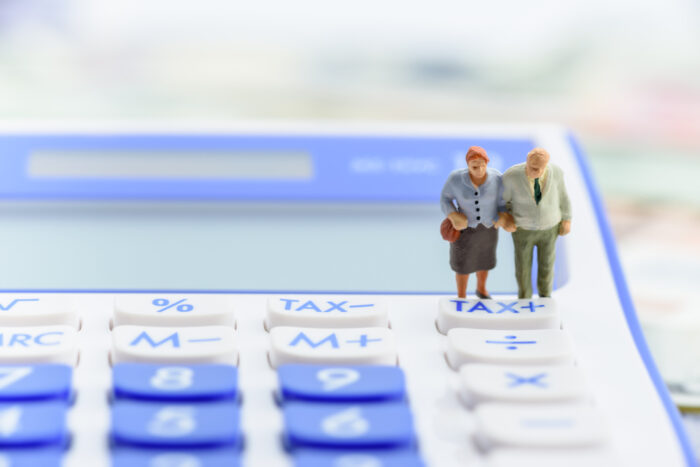One in five pensioners are set to pay a higher or additional rate of tax by the end of the 2027/28 tax year, research reveals.
There will be just over three million people of state pension age paying a new rate of tax due to thresholds frozen by the Government, according to a Freedom of Information (FOI) request by Quilter.
It will nudge 2.7 million people aged over 60 into the 40% higher rate and nearly half a million into the 45% additional rate by 2028. Over a third of those taxpayers are aged 70 or over.
This is due to the tax threshold’s continued freezes in the Spring Budget earlier this year by the former Chancellor Jeremy Hunt. Those tax brackets were frozen for the 2021/22 tax year and this is set to continue until 2027/28.
As the state pension increased by 8.5% in April, with a new headline rate of £221.20 per week, the number of people who receive the payment will exceed the £12,750 personal allowance.
This means over 140,000 pensioners have already received or are about to receive a letter from HMRC requesting they pay their tax bill, many of whom are doing so for the first time.
Those payments will be for any income received between April 2023 and April 2024.
As a whole, almost nine million (8.95 million) people aged over 65 will pay income tax this year, which is a rise from 8.27 million last year and 4.9 million in 2010/11, Government data shows.
The demographic is the latest to be dragged into a new tax threshold, as hundreds of thousands of workers follow it into paying a higher-rate band.
If you are paying more income tax than before, here are four tips on how to legally shield your earnings.
Four tips to reduce your tax burden
For those receiving the state pension, Jon Greer, head of retirement policy at Quilter, has provided some handy tips to help you reduce your overall tax burden.
1. Maximise pension contributions: Those nearing retirement or who are semi-retired and still working should look to maximise their pension contributions whenever possible. Pension contributions can sometimes help you avoid tipping over into a higher income tax bracket.
They are especially beneficial for higher-rate taxpayers, as you can currently receive up to 40% tax relief on your contribution, but will often only pay the basic rate of 20% when you withdraw the money in the future.
Each tax year, most people up to the age of 75 can earn tax relief on pension contributions they make up to 100% of their earnings, with total tax-relieved contributions limited by a £60,000 annual allowance. You can also carry forward any unused annual allowance from the previous three tax years.
2. Money purchase annual allowance (MPAA): However, if you have already accessed your pension, then you will be subject to the MPAA limit of £10,000 per tax year. Pensions provide the most tax-efficient way of saving for retirement, so it is important that people are aware of their annual allowance amount and that all who can afford to utilise it do so.
3. Keep an eye on withdrawals: For those who are already withdrawing from their pension, it is important to only take as much money as you need each tax year, as the less you withdraw, the less income tax you will pay. Similarly, it is important to remember how much pension income you will have, including your state pension income, as it is also taxable.
4. Defer state pension: If you have reached the state pension age but do not wish to retire, you have the option to defer your state pension. If you reach the state pension age on or after 6 April 2016 and opt to defer it, for every nine weeks you defer, your state pension will increase by 1%.
While this can be a good option for those who are still working and do not yet require their state pension funds, it is important to remember that the additional amount is then paid with your regular state pension payment and could be subject to tax.





